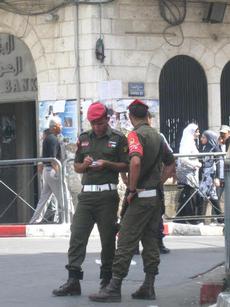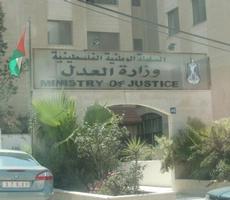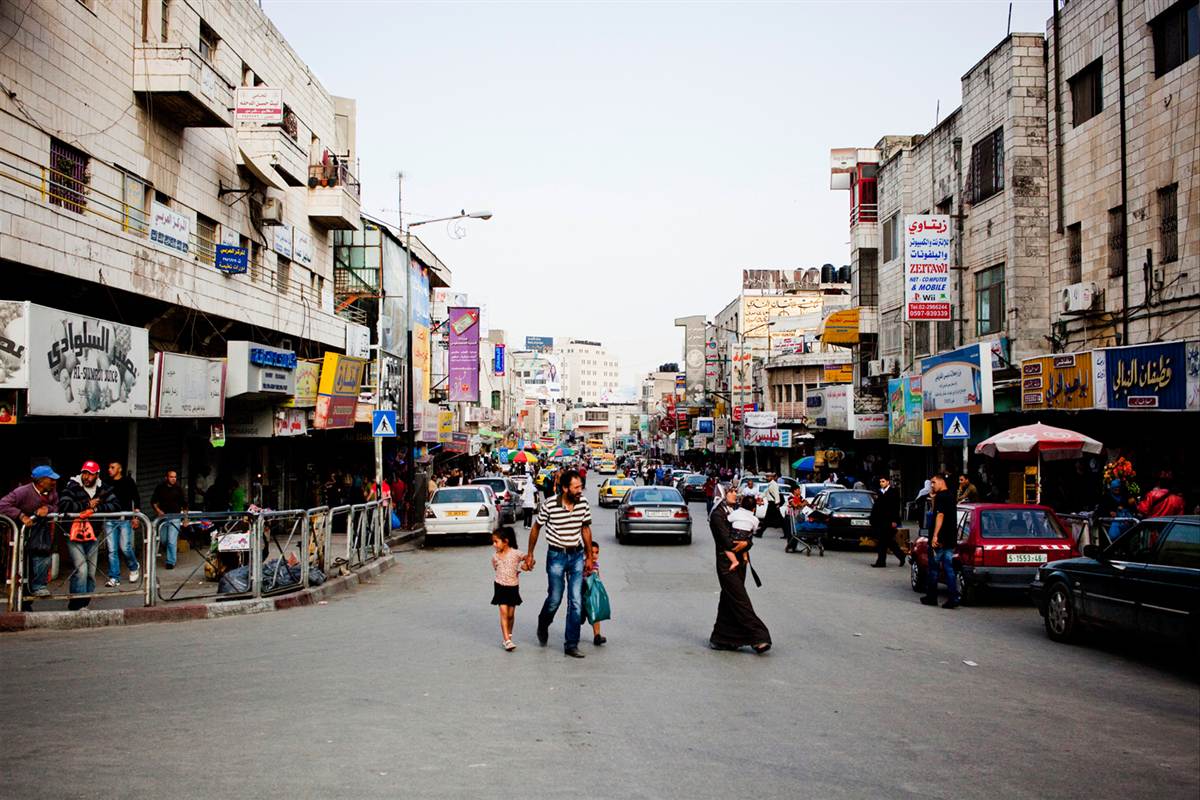“Come on inside. We can offer you something to drink,” the dark haired Spanish media officer said to me as he parked his car next to a stone building on “Tokyo Street” in Ramallah .
The building housed the headquarters of the European Union’s Police Mission in the Palestinian territories, known as “EUPOL COPPS.”(European Union Co-ordinating Office for Palestinian Police Support). There was a EUPOLCOPPS sign on it next to a nondescript brown door, and I remember noticing that the smallish first floor windows had bars on them to prevent break-ins no doubt.
It was mid-August in 2011 in the sweltering heat and we were in the area of Ramallah where there were lots of newly built government buildings belonging to the Palestinian Authority (PA).Tokyo street received its name because it led to Ramallah’s Cultural Center, which was built thanks to Japanese funding.

During Yassir Arafat’s time, the last place I would ever have wanted to visit in Ramallah would be the Palestinian police. Arafat had appointed Palestinian Civil Police head Ghazi al-Jabali who was known for corruption, curbing press and civil rights freedoms, and other police abuses. In 2004 he was kidnapped by a Palestinian group and only released after Arafat agreed to fire him. Arafat then replaced Al-Jabali with his cousin, Musa Arafat, and not surprisingly this move hardly restored public confidence in the police.
Of course, as a solo female Jewish journalist going into a police headquarters in Ramallah, I had to hope that I would be able to get out of this building as easily as I had gotten in. It all felt a bit surreal. I kept recalling the words of a professor friend of mine who was very well traveled. He always said “When you are in a third world country, stay far away from the police.”
My colleague, the Spanish media officer for EUPOLCOPPS explained that the purpose of EU’s police mission, which started on Jan 2006 after Mahmoud Abbas took over following Arafat’s death, was to support the PA in improving its civil police and law enforcement capacity. (The civil police, he said, were involved in arresting common criminals, fighting drug trafficking, directing traffic and keeping public order).
Once inside the compound, I met Yusef, a dark haired young well-mannered English speaking Palestinian, who was the head of media for the Palestinian Civil Police.

Yusef told me that the Palestinian Civil Police was planning to start up its own new radio station run by police officers, the idea being that Palestinians would turn to the police to hear the news on the hour and listen to music and entertainment. The idea was to create contact between the public and the police, and help the police solve ” social, economic and security problems,” Yusif said.
The EUPOLCOPPS Spanish media officer liked the idea very much and explained that the idea was modeled after the very popular Israel army radio station “Galei Tzahal.” Another model, he added, was Radio Amman FM Jordan as a model since it was run by the Jordanian Army. they were hoping to get financial support for the radio station from neighboring Turkey.
When they spoke about this, I began to wonder if this was such a great idea in the Palestinian case. In Israel there is has a very robust history of free speech, with a tremendous amount of independent media outlets. The country is deeply rooted in democratic traditions with a well-developed independent judiciary and criminal justice system. In Israel, anyone and everyone can criticize the government and not go to jail for it. That is unlike the case in the streets of Ramallah where the average person would never talk politics or citicize the government on the street. That I had learned when I had asked a taxi driver in Ramallah casually what he thought of Mahmoud Abbas. He didn’t respond, and my German host who worked at an NGO and was sitting in the back seat of the cab whispered that journalists couldn’t asked those kind of questions in “Palestine” since everyone would be afraid to voice dissent and criticism of the government. Contrast that to Israel, where cab drivers pontificate all day about politics and freely criticize elected politicians. In Israel, too, there are such things as elections, whereas in the PA there was no election in sight.(Note that a very recent poll by Palestinian pollster Khslil Shikaki in september 2015 found that only 23% of West bankers say that their press is free and only 29% say that they can criticize their government. http://www.timesofisrael.com/losing-palestine/)
I begin to wonder whether in Ramallah, (which was essentially an Abbas run police state, full of corruption,) it was such a good idea to set up a police radio station, especially in an area where journalists could be arrested, or jailed for criticizing the government. But, I didn’t dare voice my reservations, or point out the “cons” to their idea. (I did wonder if there might be any incitement against Jews on the police radio station)
The Spanish EUPOCOPP spokesperson told me he was very excited about the iea of a police radio station indicating that theEU’s Police Mission would help provide radio training for the cops. When the Palestinian Civil Police received transmitter equipment, “we’d give training to the Palestinian civil police to learn how to run a radio station”, including “writing scripts” and speaking into a microphone. He indicated that he had some experience in this field.
All of this talk was before the Arab Spring erupted in neighboring Egypt in February 2012, some five months later. There were pro-Egytian and pro-Tunisian rallies in Ramallah in February 2012, and the Palestinian security forces, the Palestinian Civil Police included, resorted to excessively violent suppression tactics, including arbitrary arrests and disproportionate use of force against the protestors.
I thought to myself that had there been a Palestinian police radio station, it certainly would not have reported any police excesses during the protests.
I never heard anything more about the idea of a Palestinian police radio station, and have wondered if it ever came to pass.
Any Palestinian radio station “must get approval from Israel, which allocates radio frequencies to the Palestinian Authority under the terms of the 1994 Oslo peace accords.”
Yechiel Shavi, the spokesman of the Israel Communications Ministry, told Media Line on Aug 2 2011 that the Palestinians had not yet submitted a request for a frequency for a new Palestinian civil police radio station.
“According to the agreements between us, they need to coordinate any radio station with Israel. Once they do and we find that it won’t interfere with existing broadcasts then we will consider it, but they haven’t yet approached us,” Shavi told The Media Line.
http://www.jpost.com/Middle-East/Palestinian-Authority-police-taking-to-the-air
I recently called Radio Angham in Ramallah, a private radio station and asked if a Palestinian civil police radio station or any police radio station existed. I was told it did not exist.









